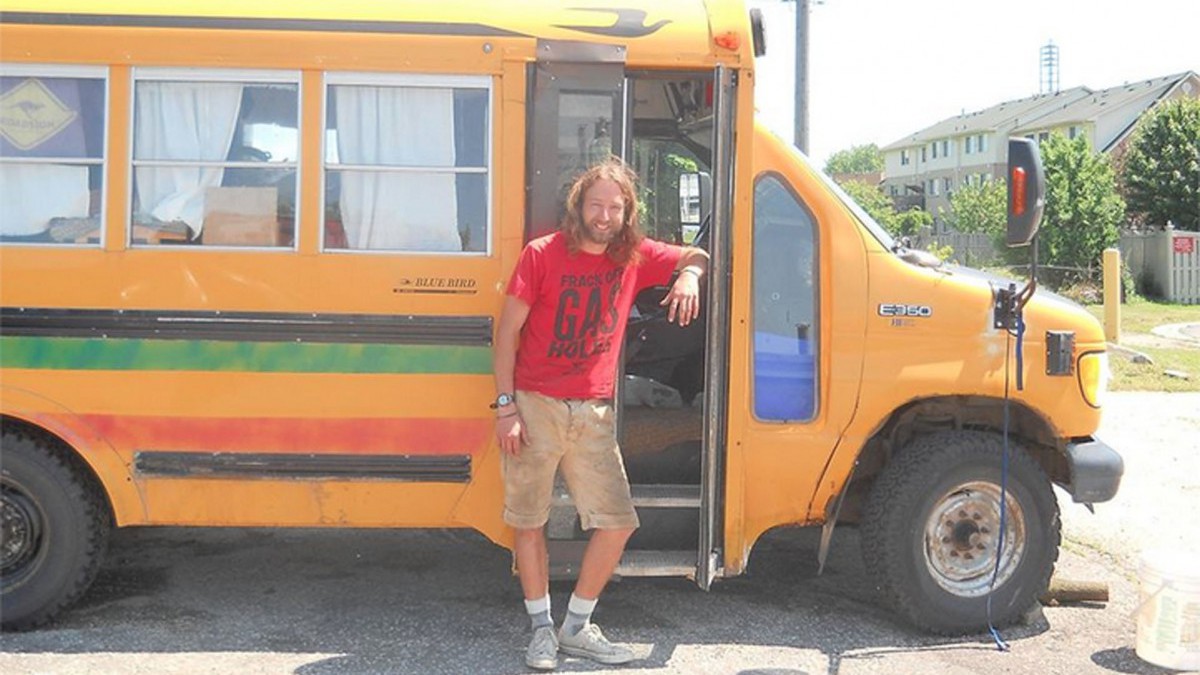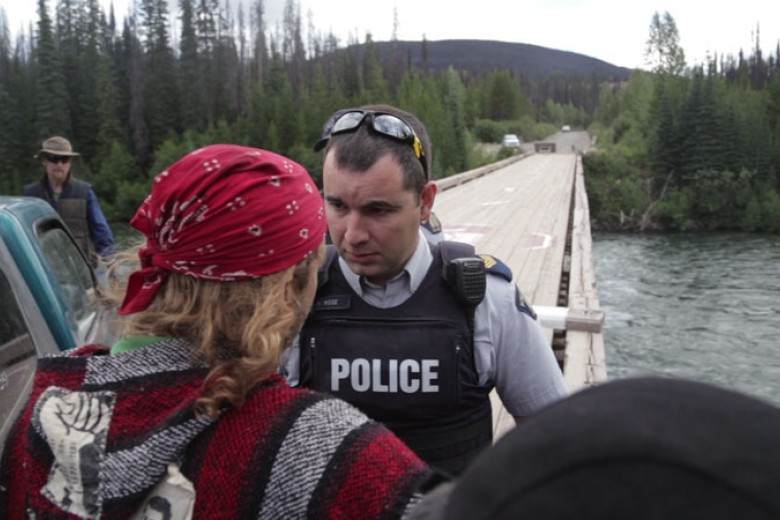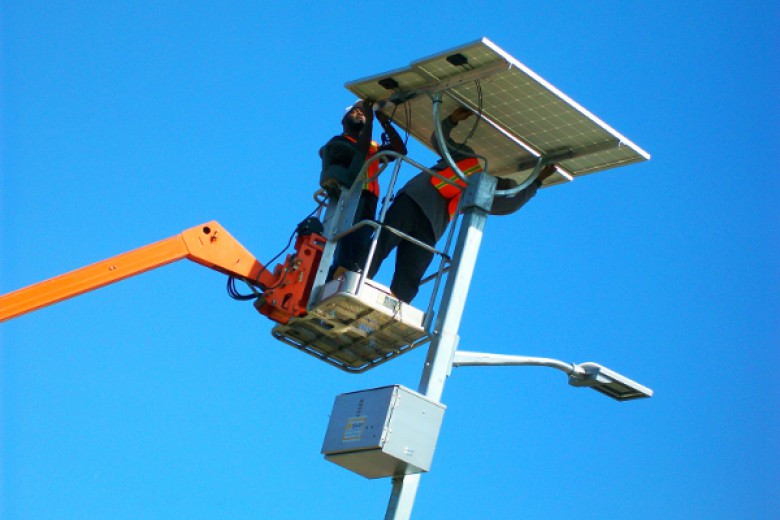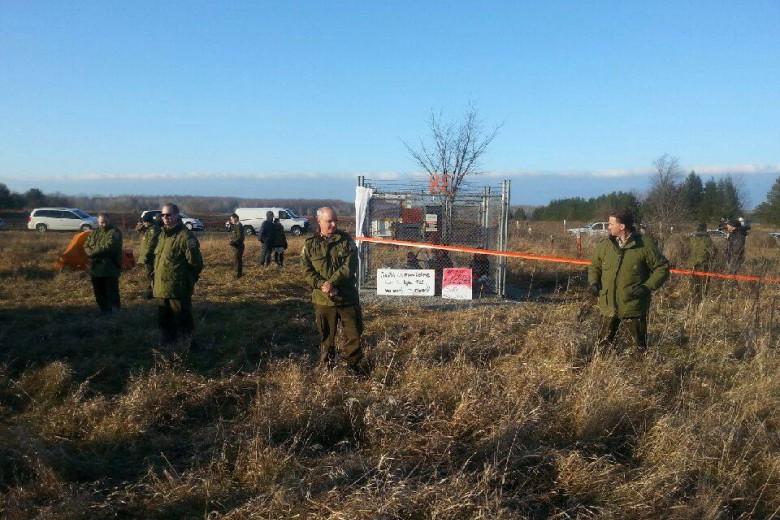Last month, the Canadian government announced its approval of the Enbridge Northern Gateway pipeline. It was not unexpected. Neither was the reaction. On the one hand, it has given Harper’s opponents a convenient platform to score political points for the next election. On the other, it has given the NGOs the chance to try to boost their campaigns with predictable statements and rallies in the streets. But for the longest running pipeline blockade, the announcement actually changes nothing because they are already under threat from a different pipeline – one that conveniently happens to follow an almost identical route through B.C. to the same end destination.
Since 2010, activists in the Unist’ot’en Camp have been building structures on the exact GPS coordinates that the Enbridge Northern Gateway and Chevron Pacific Trail pipelines intend to pass through. The Unist’ot’en are not prepared pick and choose when it comes to pipelines. They are dead-set against Enbridge Northern Gateway, and they will also not stand aside and allow pipelines intended to carry fracked gas from Alberta and Northeastern B.C. Both the oil and the gas pipelines would head for terminals on the West Coast where tankers would transport the dirty energy overseas.
So while much fanfare is made in the media and civil society about Enbridge – the boots-on-the-ground fight there is still years away. It may be that the legal battles and political movement will stop Enbridge in its tracks. It also may be that industry is calculating that the focus on Enbridge will allow them to construct a massive fracked-gas pipeline corridor and clear out what would be the toughest opposition to Northern Gateway before people even realize what is happening.
Chevron has actively begun clearing the right of way for their proposed Pacific Trail Pipeline (PTP) and company officials have stated that construction could begin as early as this summer. If completed, the PTP would stretch 487 km from Summit Lake to Kitimat and carry up to one billion cubic feet of fracked gas every day. In response, both Indigenous and settler allies are making the journey to join the Unist’ot’en Camp this summer.
What the Unist’ot’en are saying, with a message that is resonating across Turtle Island, is that decisions concerning Enbridge and Chevron’s pipeline proposals do not rest with Harper or the Canadian government. They rest with the traditional owners of the land. The traditional territory of the Unist’ot’en spans tens of thousands of square kilometers and has never been ceded, surrendered, or sold. The Unist’ot’en have consistently maintained sovereign governance through their hereditary chiefs and uninterrupted traditional use of their territories.
The recent Enbridge decision has resulted in an increased media spotlight on the Unist’ot’en resistance. Their spokesperson Freda Huson has been featured in recent articles ranging from the Globe and Mail to VICE to the Georgia Straight. The Unist’ot’en message is simple. They are opposed to any new pipelines on their territory and they will assert and enforce their own laws to stop them. In a video distributed from the camp, Huson has warned that if any pipeline workers try to enter the territory, they will find themselves walking out.
By NASA’s measurements, this past May was the warmest on record and if the trend continues 2014 could be the hottest year on record. Currently the levels of carbon in our atmosphere are sitting at above 400 parts per million for the first time in almost a million years. The carbon dioxide we emit right now will have cumulative effects that will be dire by century’s end.
And the consequences are not limited to the future. The ocean is acidifying. Global sea levels are rising. Extended droughts are threatening our food supply. Extreme storms are destroying cities and towns. Melting permafrost is releasing methane in the Arctic. The list goes on.
When we ground ourselves in the reality of the situation we are collectively facing, it’s clear there is no room for compromise. Nature will not compromise, nor will it let us off the hook or have mercy on us because of our good intentions. The planet’s outcome will be based on results.
Stopping Chevron’s Pacific Trail Pipeline this summer could be a decisive event in this new history. It is the first project to truly test the resolve and will of those who are prepared to stand in the way. A victory against Chevron would have a shattering effect on investor certainty and possibly put an end to the liquefied natural gas boom before it even gets off the ground. Could Enbridge even dream of bringing through an oil pipeline after that?
Now is the time to be uncompromising, to support actual boots-on-the-ground resistance. The Unist’ot’en Camp is an active blockade based on the principles and practices of Indigenous sovereignty and responsibility.
Click HERE to learn how to visit or support the The Unist’ot’en Camp.







